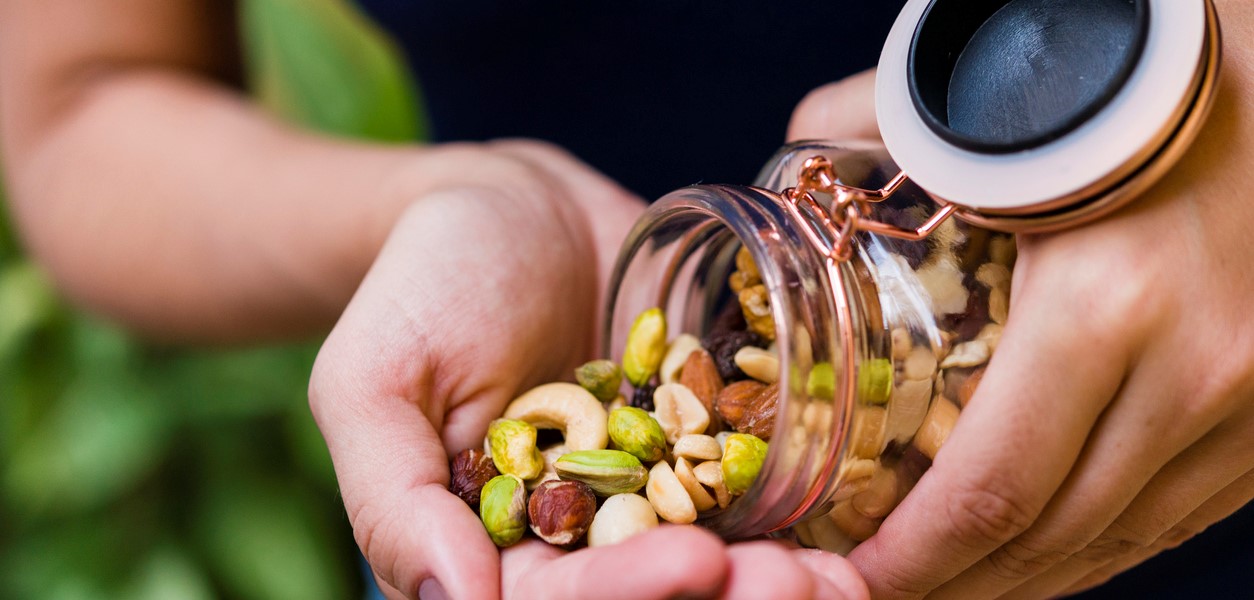Four elements – calciumWhat it does: Promotes a healthy heart, clots blood, promotes healthy nerves, contracts muscles, improves skin, bone and dental health, relieves aching muscles and bones,…, phosphorus, magnesiumWhat it does: Strengthens bones and teeth, promotes healthy muscles by helping them to relax, also important for PMS, important for heart muscles and nervous…, and sulphur – plus sodium and potassiumWhat it does: Enables nutrients to move in and waste products to move out of cells, promotes healthy nerves and muscles, maintains fluid balance in… which control both the water balance and electrical signalling in the body – are called macro-minerals because we need relatively large amounts each day (300–3,000mg). Sulphur is largely ignored because it’s a component of many proteins so, if you’re not lacking proteinProteins are large molecules consisting of chains of amino acids. Proteins are essential nutrients for the human body – they are a building block of… you’re unlikely to be lacking sulphur.
The remaining elements are called trace minerals because we need only traces each day (30mg–30mcg). But all these minerals are required in tiny amounts compared to carbon, hydrogen and oxygen.
In the body, minerals are mainly used to regulate and balance our body chemistry; the exceptions are calcium, phosphorus and magnesium which are the major constituents of bone.
For example, a 63.5kg (10 stone) man needs 400g of carbohydrateCarbohydrates are the primary source of energy for the body as they can be broken down into glucose (sugar) more readily than either protein or… a day but only 40mcg of chromiumWhat it does: Helps balance blood sugar, normalise hunger and reduce cravings, improves lifespan, helps protect cells, essential for heart function. Deficiency Signs: Excessive or…, which is less than a millionth of the amount. Yet chromium is no less important.
The main minerals to be mindful of
Although we need all the minerals mentioned above in order to be healthy, there are some that vegans need to be particularly aware of, not because you cannot get them from a plant-based diet, as is the case with vitamin B12, but because you need to be mindful about what you eat in order to achieve enough. The most important in this respect are ironWhat it does: As a component of red blood cells, iron transports oxygen and carbon dioxide to and from cells. Also vital for energy production…., iodine, seleniumWhat it does: Antioxidant properties help to protect against free radicals and carcinogens, reduces inflammation, stimulates immune system to fight infections, promotes a healthy heart,…, calcium, magnesium and zincWhat it does: Component of over 200 enzymes in the body, essential for growth, important for healing, controls hormones, aids ability to cope with stress…. The last two are not more deficient in a vegan diet than in an omnivorous one; they are just the most commonly deficient in everyone’s diet, and the most important for health.
Selenium and iodine are found in the richest quantities in seafood hence seaweed is an excellent source of both these minerals. Iron, like zinc, is abundant in ‘seed’ foods, including beans, lentils, nuts and seeds, so it can be well supplied in a healthy vegan diet. The iron found in plant-based foods is not as bioavailable as that found in meat, called haem iron, but it can be made more bioavailable.
Calcium, although found richly in dairy products, is also in plentiful supply in seed foods, such as almonds, and many nut milks. Calcium is no more bioavailable from dairy milk than plants, as long as you have sufficient vitamin DWhat it does: Helps maintain strong and healthy bones by retaining calcium. Deficiency Signs: Joint pain or stiffness, backache, tooth decay, muscle cramps, hair loss….. Magnesium is abundant in a healthy vegan diet and of great importance to health.
If you’d like to know more about minerals on a vegan diet and how to achieve optimal amounts from take a look at my book Optimum Nutrition for Vegans.
OPTIMUM NUTRITION FOR VEGANS
If you are finding it challenging being a healthy vegan or are considering becoming vegan/more plant based but lack the confidence to take the leap, then try my new book Optimum Nutrition for Vegans published in December 2020 (Piatkus).
I explain how to get enough protein and brain fats, control your sugar and energy, ensure you maintain sufficient vitamin and mineral levels and other small steps that maintain a good overall health.
I also cover what to eat, and in what combination, to achieve the best of health with clear principles for how to get enough good quality protein by combining foods, slow release carbs and essential fats. Plus 100 delicious easy vegan recipes that will nourish your body and your brain.


Comments
Join the Conversation on our Facebook Page